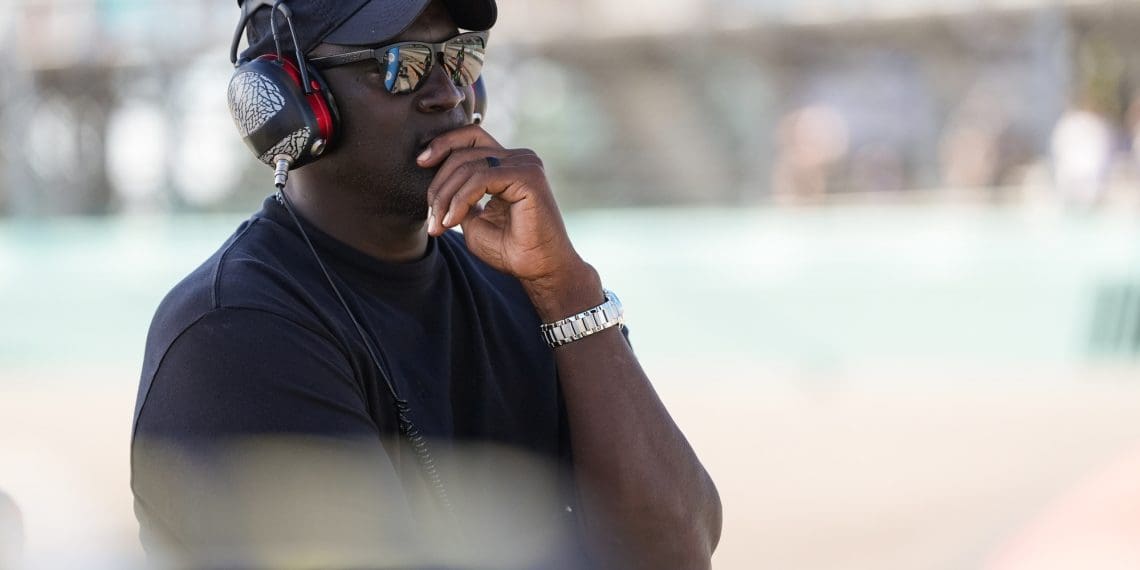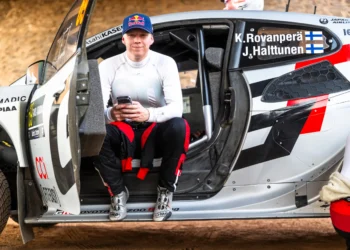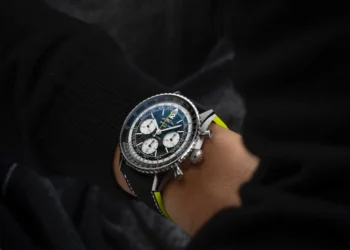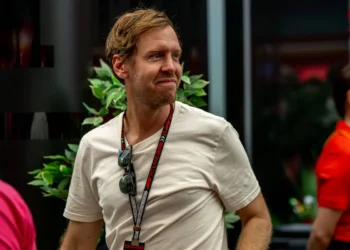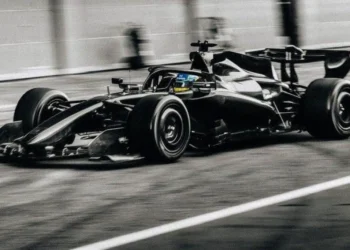The 2025 NASCAR Cup Series has kicked off with a bang, not only on the racetrack but also in the legal arena. One of the most significant legal battles in the sport’s history is currently playing out as 23XI Racing and Front Row Motorsports (FRM) challenge NASCAR. The crux of the teams’ argument is that NASCAR unjustly manipulates the sport’s charter system, limiting opportunities for competition and financial growth for teams outside its favored circle.
Denny Hamlin, co-owner of 23XI, didn’t mince words when discussing the legal dispute. “We had to exercise our legal action to make it happen,” he said, underscoring the necessity of the legal fight. While the court has allowed both teams to continue competing, the litigation is still ongoing. However, this isn’t NASCAR’s first dance with litigation from one of its top drivers. A blast from the past takes us back to 2007 when Jeff Burton and his $188 billion sponsor took NASCAR to court over limiting competition.
Sponsorship has always been the lifeblood of NASCAR, with corporate logos adorning race cars and driver suits. Back in 2007, however, a sponsorship dispute spiraled into a full-blown legal war between NASCAR and telecom titan AT&T. The saga began when Jeff Burton’s primary sponsors, Cingular, were acquired by AT&T, a company that had been backing the No.31 car of Richard Childress Racing since 2001.
In 2003, Sprint Nextel inked a 10-year deal to become the title sponsor of NASCAR’s top series, thereby rebranding it as the Nextel Cup. As part of the agreement, NASCAR granted Nextel exclusive rights in the telecommunications category, effectively shutting out competitors. However, Cingular and Alltel were allowed to continue under a grandfather clause due to their pre-Nextel involvement in the sport.
The plot thickened in 2007 when Cingular was purchased by AT&T. The new telecom brand decided to rebrand its NASCAR sponsorship, but was blocked by NASCAR, citing its agreement with Nextel. AT&T took the matter to court in March 2007, arguing that NASCAR’s refusal to allow the rebrand was unjust. The case heated up when U.S. District Judge Marvin Shoob granted a preliminary injunction in May 2007.
Despite the blow, NASCAR chose to counter-attack by filing a staggering $100 million lawsuit against AT&T, accusing the telecom company of contract breach, fraud, and interference with its exclusive agreement with Nextel. NASCAR also sought the right to ban AT&T from its Cup series. Caught in the crossfire of this legal tug-of-war were Richard Childress Racing and Jeff Burton.
While the legal proceedings were underway, Burton was forced to drive his No.31 RCR car without a sponsor for almost half of the season. Eventually, a compromise was reached in September 2007. NASCAR dropped its $100 million lawsuit as AT&T agreed to withdraw after the 2008 season. The settlement allowed AT&T a transition period while preserving Nextel’s exclusivity from 2009 onward.
This lawsuit was a critical case that spotlighted the power dynamics between corporate sponsors and NASCAR’s governing body. It set a precedent for future sponsorship disputes and underscored NASCAR’s authority over its commercial agreements.
However, this isn’t the only legal battle NASCAR has faced in the 21st century. From Francis Ferko’s anti-trust lawsuit in 2002 to Jeremy Mayfield’s defamation and breach of contract case in 2009, NASCAR has been at the center of various legal controversies.
The latest addition to the list is the ongoing antitrust lawsuit between NASCAR, Front Row Motorsports, and 23XI Racing. The teams allege that the new charter system is anti-competitive and restricts their ability to operate fairly. They contend that NASCAR holds disproportionate control over team ownership, sponsorship revenue, and race participation. The resolution of this case remains to be seen, adding yet another chapter to NASCAR’s history of legal battles.

